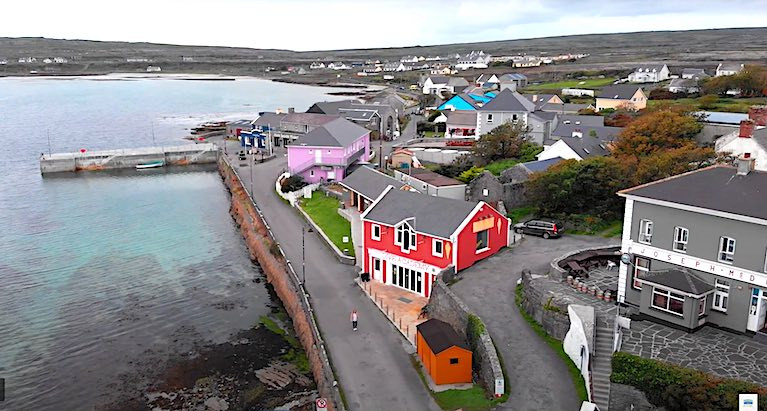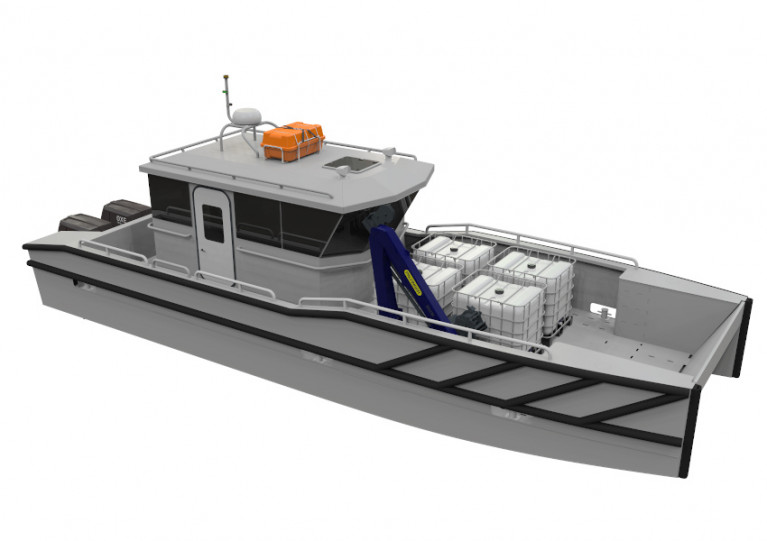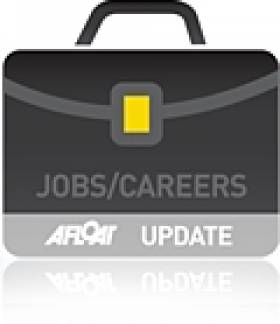Displaying items by tag: Offshore Energy
Aran Islands Aims for Own Microgrid in Offshore Renewable Energy Project (PODCAST)
The Government’s ambitious plans for renewable energy off the Atlantic coast should involve communities as active stakeholders and not just recipients of compensation, an island energy co-op has said.
Dara Ó Maoildhia, chairman of Comharchumann Fuinneamh Oileáin Árann, the Aran islands energy co-op, says his group is “campaigning hard” to ensure local communities will have a central role.
“One of our main ambitions is that the three Aran islands will have their own microgrid,” he told this week’s Wavelengths podcast.
 Dara Ó Maoildhia, chairman of Comharchumann Fuinneamh Oileáin Árann, the Aran islands energy co-op. Screenshot courtesy: Comharchumann Fuinneamh Oileáin Árann
Dara Ó Maoildhia, chairman of Comharchumann Fuinneamh Oileáin Árann, the Aran islands energy co-op. Screenshot courtesy: Comharchumann Fuinneamh Oileáin Árann
The co-op is also collaborating in research on hydrogen energy, which may have applications for island ferries as well as businesses, transport and residences.
A consortium of islands led by Kerry’s Valentia Island Co-op and Rathlin, Co Antrim has been examining the feasibility of combining offshore wind with electrolyser technology to convert water to hydrogen.
Meanwhile, researchers at the NUIG Ryan Institute Energy Research Institute are also collaborating in a five-year project that will generate, distribute and use at least 300 tonnes of hydrogen per year produced from solar energy on the Balearic island of Mallorca.
 Dr Thomas van Rensburg
Dr Thomas van Rensburg
The NUIG team in the Green Hyslands project involves Dr Pau Farràs Costa, Dr Rory Monaghan and Dr Thomas van Rensburg, and they say it will reduce CO2 emissions by 20,000 tonnes per year.
The NUIG team will assess the economic impacts of the green hydrogen on Mallorca, as well as on other island communities involved in the project, including the Aran Islands.
Dr van Rensburg also spoke to Wavelengths and you can listen below
Chartwell Marine Unveils New Landing Craft to Support Irish Offshore Energy Operations
British boatbuilder Chartwell Marine has unveiled its bespoke 12m landing craft commissioned by a leading Dublin boat charter company to support large-scale offshore energy projects.
The aluminium vessel for Irish Commercial Charter Boats (ICCB) will be constructed at Arklow Marine Services, with a view to hitting the water this summer.
And according to Chartwell Marine, it sets the stage “for a rapid build-out of the Irish offshore fleet in the next few years, as new large-scale energy projects come online”.
The company says the “market-first” craft has been designed “to meet ICCB’s expanding operational requirements, including surveying, assisting with cable landing and transporting supplies and personnel to near-shore offshore installations”.
It will be powered by two OXE diesel outboard engines, plus room for a spare onboard, with the flexibility to replace these with electric outboard motors in future.
And its shallow draft, allowing it to operate in depts of just 0.8 metres, will ensure “maximum versatility in the shallow waters around the East Irish coast”.
ICCB director Eoin Grimes said: “We’re excited to help drive the development of the next generation of Irish offshore support vessels.
“Chartwell Marine’s vessel offers us unparalleled manoeuvrability and versatility, especially in the shallow waters around Ireland, which will be vital as we continue to diversify our offering to the offshore energy market.”
Kildare Firm Creates Jobs With Robot Submarine Deal
#Jobs - RTÉ News reports that Kildare-based firm Cathx Ocean will create 50 jobs over the next two years after winning a contract to supply imaging systems for robot submarines.
Minister for Jobs Richard Bruton welcomed the deal with US company Bluefin Robotics as the latest in a series of international contracts for the Irish marine technology firm, whose products are used for underwater surveys particularly in the oil and gas industry.
The minister was speaking at a trade mission that coincided with the Offshore Technology Conference in Houston, Texas, which saw a number of Irish companies secure new deals with American firms in the offshore energy sector.
RTÉ News has more on the story HERE.































































